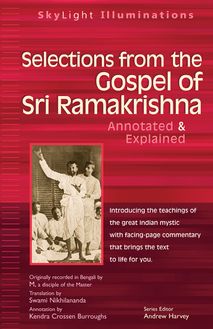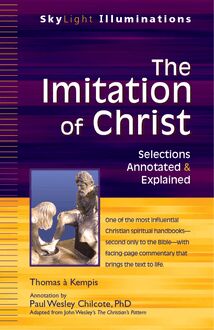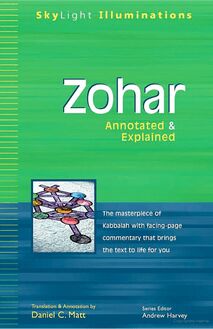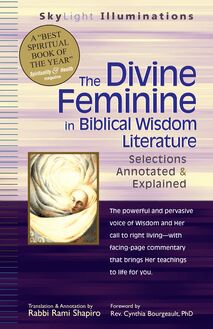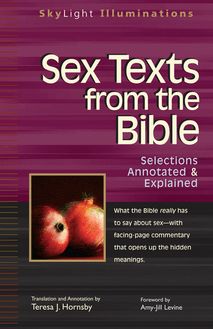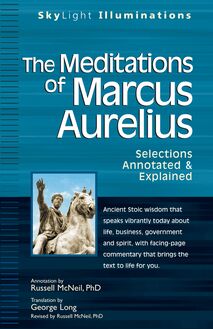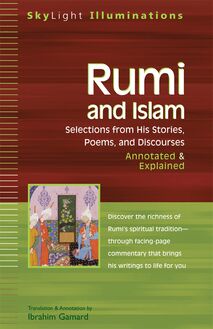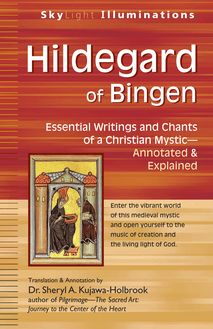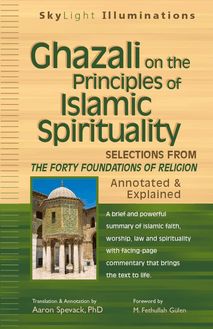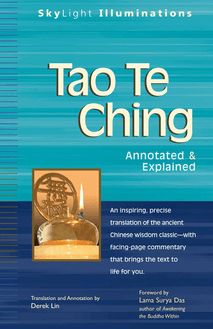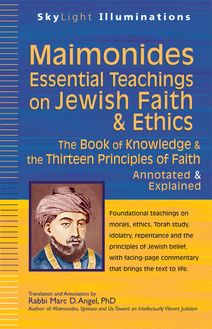Rumi and Islam , livre ebook
136
pages
English
Ebooks
2011
Vous pourrez modifier la taille du texte de cet ouvrage
Obtenez un accès à la bibliothèque pour le consulter en ligne En savoir plus
Découvre YouScribe en t'inscrivant gratuitement
Découvre YouScribe en t'inscrivant gratuitement
136
pages
English
Ebooks
2011
Vous pourrez modifier la taille du texte de cet ouvrage
Obtenez un accès à la bibliothèque pour le consulter en ligne En savoir plus
Publié par
Date de parution
21 juillet 2011
Nombre de lectures
7
EAN13
9781594733710
Langue
English
Discover the richness of Rumi’s spiritual tradition—through
facing-page commentary that brings his writings to life for you.
"This book you are now holding is a selection of what I believe are the best of Rumi’s accounts of the compassionate actions, sayings, and qualities of the Prophet, which include Rumi’s own inspired comments and explanations. It is my hope that you will be surprised and uplifted by the profound wisdom that Jalaluddin Rumi conveys through these stories and sayings."
—from the Preface
This great Sufi poet and teacher can become a companion for your own spiritual journey.
The lyric and wisdom poetry of Mawlana Jalaluddin Rumi has been an inspiration throughout the Middle East and Asia for over seven hundred years. Recently, it has also become popular in Western countries through translations and interpretive poetic versions in English. But while popular renderings have created the appreciation of Rumi the mystic, there is little understanding today of the religious and spiritual traditions from which the great mystic came. Rumi and Islam—Selections from His Stories, Poems, and Discourses examines not the popularized Rumi of universal love but the Sufi disciple whose works express deep reverence for the Prophet Muhammad. Ibrahim Gamard focuses on Rumi’s place within the Sufi tradition of Islam, as one of the greatest Muslim followers of the Prophet Muhammed, and on the Islamic foundations of his lover-Beloved mystical poetry. By probing verse by verse Rumi’s spiritual teachings, Gamard provides insight into the mystical side of the Qur’an and Islam, a religion that holds a deep love of God at its core.
Now you can experience the profound and uplifting wisdom of Rumi even if you have no previous knowledge of Sufism or Islam. This SkyLight Illuminations edition presents the most important of Rumi’s writings, mainly from the Mathnawi, with insightful yet unobtrusive commentary that conveys how his teachings about the nature of love for God and God’s love for us can increase our understanding of Islamic wisdom in the West.
Publié par
Date de parution
21 juillet 2011
Nombre de lectures
7
EAN13
9781594733710
Langue
English
Selected Books in the SkyLight Illuminations Series
The Art of War-Spirituality for Conflict: Annotated & Explained
Bhagavad Gita: Annotated & Explained
The Book of Mormon: Selections Annotated & Explained
Celtic Christian Spirituality: Essential Writings-Annotated & Explained
Chuang-tzu: The Tao of Perfect Happiness-Selections Annotated & Explained
Confucius, the Analects : The Path of the Sage-Selections Annotated & Explained
Dhammapada: Annotated & Explained
The Divine Feminine in Biblical Wisdom Literature: Selections Annotated & Explained
Ecclesiastes: Annotated & Explained
The End of Days: Essential Selections from Apocalyptic Texts-Annotated & Explained
Ethics of the Sages: Pirke Avot -Annotated & Explained,
Ghazali on the Principles of Islamic Spirituality: Selections from Forty Foundations of Religion -Annotated & Explained
Gnostic Writings on the Soul: Annotated & Explained
The Gospel of Philip: Annotated & Explained
The Gospel of Thomas: Annotated & Explained
Hasidic Tales: Annotated & Explained
The Hebrew Prophets: Selections Annotated & Explained
The Hidden Gospel of Matthew: Annotated & Explained
The Infancy Gospels of Jesus: Apocryphal Tales from the Childhoods of Mary and Jesus-Annotated & Explained
John and Charles Wesley: Selections from Their Writings and Hymns-Annotated & Explained
The Lost Sayings of Jesus: Teachings from Ancient Christian, Jewish, Gnostic, and Islamic Sources-Annotated & Explained
Maimonides-Essential Teachings On Jewish Faith and Ethics: The Book of Knowledge and the Thirteen Principles of Faith-Annotated & Explained
The Meditations of Marcus Aurelius: Selections Annotated & Explained
Native American Stories of the Sacred: Annotated & Explained
Philokalia: The Eastern Christian Spiritual Texts-Annotated & Explained
Proverbs: Annotated & Explained
The Qur an and Sayings of Prophet Muhammad: Selections Annotated & Explained
Rumi and Islam: Selections from His Stories, Poems, and Discourses-Annotated & Explained
The Sacred Writings of Paul: Selections Annotated & Explained
Saint Augustine of Hippo: Selections from Confessions and Other Essential Writings-Annotated & Explained
The Secret Book of John: The Gnostic Gospel-Annotated & Explained
Selections from the Gospel of Sri Ramakrishna: Annotated & Explained
Sex Texts from the Bible: Selections Annotated & Explained
Spiritual Writings on Mary: Annotated & Explained
St. Ignatius Loyola-The Spiritual Writings: Selections Annotated & Explained
Tanya , the Masterpiece of Hasidic Wisdom: Selections Annotated & Explained
Tao Te Ching: Annotated & Explained
The Way of a Pilgrim: The Jesus Prayer Journey-Annotated & Explained
Zohar: Annotated & Explained
Rumi and Islam: Selections from His Stories, Poems, and Discourses
Annotated & Explained
First Printing 2004
Translation, annotation, and introductory material 2004 by Ibrahim Gamard
All rights reserved. No part of this book may be reproduced or transmitted in any form or by any means, electronic or mechanical, including photocopying, recording, or by any information storage and retrieval system, without permission in writing from the publisher.
For information regarding permission to reprint material from this book, please mail or fax your request in writing to SkyLight Paths Publishing, Permissions Department, at the address / fax number listed below, or e-mail your request to permissions@skylightpaths.com.
Library of Congress Cataloging-in-Publication Data
Jalal al-Din Rumi, Maulana, 1207-1273.
[Selections. English. 2004]
Rumi and Islam: selections from his stories, poems, and discourses
annotated & explained / translation & annotation by Ibrahim Gamard.
p. cm.-(SkyLight Illuminations)
Includes bibliographical references (p. ) and index.
ISBN 1-59473-002-4
1. Jalal al-Din Rumi, Maulana, 1207-1273-Religion. 2. Mevleviyeh. 3. Sufism. I. Gamard, Ibrahim. II. Title. III. Series.
BP189.7.M4 J3513 2004
297.4-dc22
2003026380
10 9 8 7 6 5 4 3 2 1
Manufactured in the United States of America
SkyLight Paths, Walking Together, Finding the Way and colophon are trademarks of LongHill Partners, Inc., registered in the U.S. Patent and Trademark Office.
SkyLight Paths Publishing is creating a place where people of different spiritual traditions come together for challenge and inspiration, a place where we can help each other understand the mystery that lies at the heart of our existence.
SkyLight Paths sees both believers and seekers as a community that increasingly transcends traditional boundaries of religion and denomination-people wanting to learn from each other, walking together, finding the way .
Walking Together, Finding the Way
Published by SkyLight Paths Publishing
A Division of LongHill Partners, Inc.
Sunset Farm Offices, Route 4, P.O. Box 237
Woodstock, VT 05091
Tel: (802) 457-4000 Fax: (802) 457-4004
www.skylightpaths.com
I would like to dedicate this book to Shaykh Shafiq Jan of Istanbul, the chief spiritual director (Sar-i Tariqat) of the Mevlevi (Whirling Dervishes) order of Islamic Sufism, who, now in his mid-nineties, has been studying the works of Rumi in Persian since boyhood, who has written books that translate and explain Rumi s poetry and teachings in the Turkish language, and who comes from a long lineage of Mevlevi scholars able to understand and appreciate Rumi s words and teachings in the original Persian.
I also dedicate this book to lovers of Rumi s poetry everywhere who are interested in attaining a deeper understanding of his sublime spiritual wisdom.
Contents
Preface
Introduction
Stories of the Prophet
1. Warfare
Annotations
2. The Captives
Annotations
3. Hilal
Annotations
4. The Sick One
Annotations
5. Bilal
Annotations
6. The Water Carrier
Annotations
7. The Greedy Pagan
Annotations
8. The Blind One
Annotations
9. The Arrival of the Caravan
Annotations
10. The Groaning Pillar
Annotations
11. Ayisha
Annotations
12. Zayd
Annotations
Sayings of the Prophet
13. Prayer and Guidance
Annotations
14. Self-Denial and Ego-Death
Annotations
15. Divine Sayings
Annotations
Praises of the Prophet
16. Affirmations and Blessings
Annotations
17. Praises and Virtues
Annotations
18. Love and Closeness with God
Annotations
19. The Seal of the Prophets
Annotations
20. The Night Journey, the Cave, and the Pillar
Annotations
21. Prayer and Pilgrimage
Annotations
22. The Light of Muhammad and Intercession
Annotations
23. Death and Resurrection
Annotations
Notes
Glossary
Suggested Readings and Resources
Index of Passages in Rumi s Works
Acknowledgments
About SkyLight Paths
Copyright
Preface
I first began studying the Mathnawi, Jalaluddin Rumi s poetic masterpiece of Islamic mystical wisdom, in 1975. My wife, Sher, and I were living in Los Angeles, California, in a center for Sufi studies. Every Thursday night we whirled with several others in Turkish dervish costumes, and our teacher, Reshad Feild, gave a lecture to guests and led Sufi chanting. One day, he told us that the head of the Mevlevi (Whirling Dervishes) Sufi order in Turkey was coming to America for the first time in order to visit us. He was Suleyman Loras Dede, from Konya, the very city where Rumi lived and is buried. Dede was the chief spiritual leader [ shaykh ] of the Mevlevi Sufi order, which has maintained the spiritual teachings and practices of Rumi and his successors for more than seven hundred years.
In preparation for Dede s upcoming visit, I spent several months reading the Mathnawi in R. A. Nicholson s complete translation-over fourteen hundred pages of dense, antiquated-sounding, and highly academic British English. In this book I found many passages that were exquisitely and rapturously mystical, full of the mystic lover s ecstatic love for God (described as the Only Beloved and Friend) and God s Infinite Love and Mercy in response. I found this book to be the greatest work of religious mysticism that I had ever found in all my explorations of mysticism in world traditions (a conviction I continue to hold).
When Suleyman Dede arrived in Los Angeles in 1976, he blessed our tall conical hats, taught us the basics of the famous Mevlevi Whirling Prayer Ceremony, and led the ceremony in full costumes in a local gymnasium-a ritual of great spiritual blessings (and one in which my wife and I continue to participate). The next year my wife and I visited him in Turkey, where we visited Rumi s tomb, a place full of the perfume of God s Love. I asked a Western woman who translated for Dede s English-speaking disciples there whether we could learn what Dede had to teach about the Mathnawi. She replied that this would be far too difficult to translate from Turkish.
About five years later, I decided to teach myself Persian in order to study the Mathnawi in its original text. I bought a small introductory grammar and soon learned to find words in a large Persian-English dictionary. I then looked up every word in the first couplet of the Mathnawi: Listen to the reed-flute, how it complains of separations. During the next years, I gradually read the entire text in Persian, with the help of Nicholson s literal translation.
In 1985, I heard that there was a new professor of Persian literature, an Afghan, at the University of California, Berkeley. After I met Dr. Ravan Farhadi, he proposed that we translate all of the nearly two thousand quatrains attributed to Rumi. We have worked on this project in our spare time ever since (it is now an unpublished manuscript, The Quatrains of Rumi ). Over the years, Dr. Farhadi s correction of my translation efforts has been an invaluable help in learning the Persian of Rumi s time, and this, together with accurate published translations, has given me the good fortune of learning to appreciate and understand Rumi s mystical poetry and spiritual teachings.
In 1
